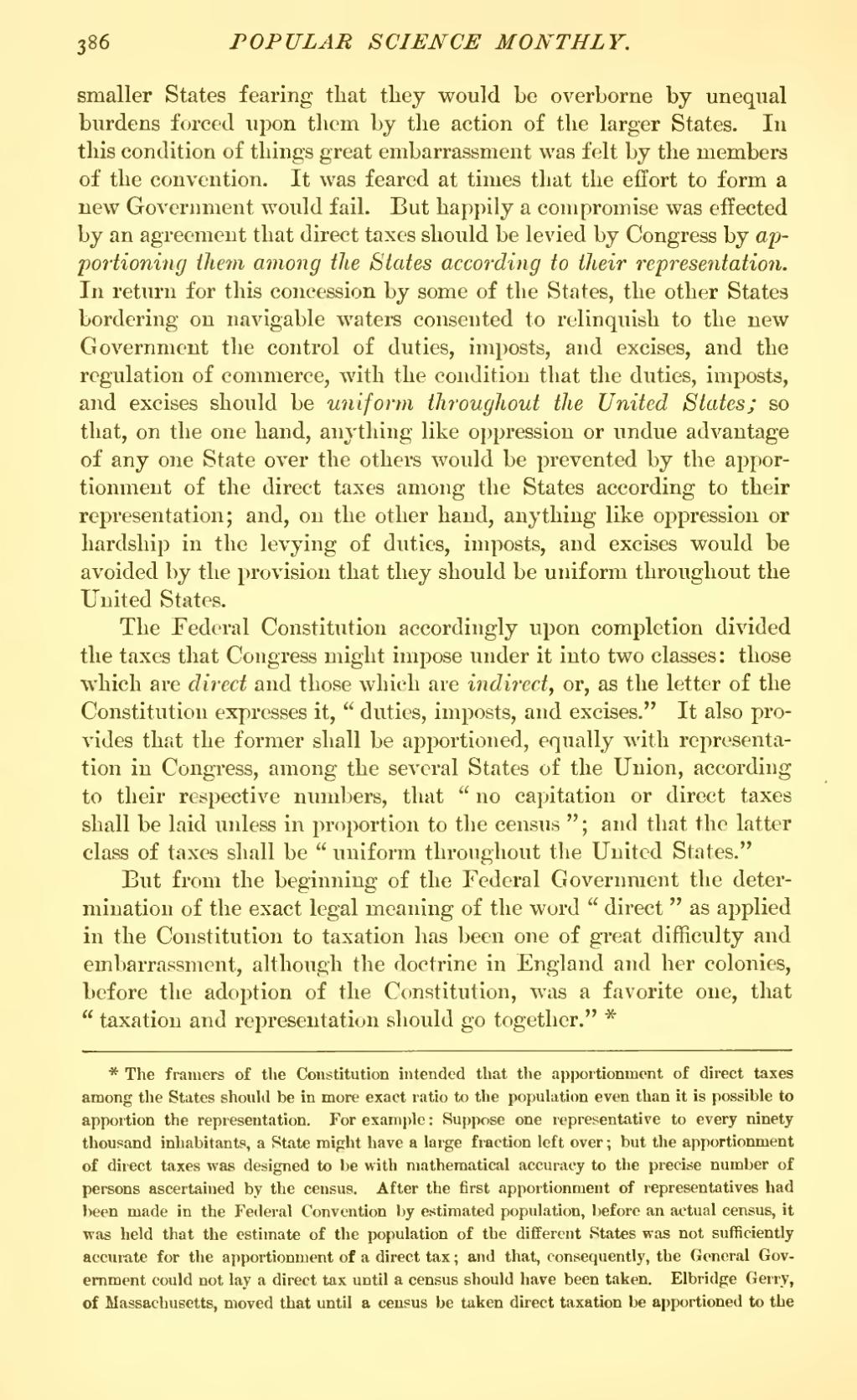smaller States fearing that them would be overborne by unequal burdens forced upon them by the action of the larger States. In this condition of things great embarrassment was felt by the members of the convention. It was feared at times that the effort to form a new Government would fail. But happily a compromise was effected by an agreement that direct taxes should be levied by Congress by apportioning them among the States according to their representation. In return for this concession by some of the States, the other States bordering on navigable waters consented to relinquish to the new Government the control of duties, imposts, and excises, and the regulation of commerce, with the condition that the duties, imposts, and excises should be uniform throughout the United States; so that, on the one hand, anything like oppression or undue advantage of any one State over the others would be prevented by the apportionment of the direct taxes among the States according to their representation; and, on the other hand, anything like oppression or hardship in the levying of duties, imposts, and excises would be avoided by the provision that they should be uniform throughout the United States.
The Federal Constitution accordingly upon completion divided the taxes that Congress might impose under it into two classes: those which are direct and those which are indirect, or, as the letter of the Constitution expresses it, "duties, imposts, and excises." It also provides that the former shall be apportioned, equally with representation in Congress, among the several States of the Union, according to their respective numbers, that "no capitation or direct taxes shall be laid unless in proportion to the census"; and that the latter class of taxes shall be "uniform throughout the United States."
But from the beginning of the Federal Government the determination of the exact legal meaning of the word "direct" as applied in the Constitution to taxation has been one of great difficulty and embarrassment, although the doctrine in England and her colonies, before the adoption of the Constitution, was a favorite one, that "taxation and representation should go together."[1]
- ↑ The framers of the Constitution intended that the apportionment of direct taxes among the States should be in more exact ratio to the population even than it is possible to apportion the representation. For example: Suppose one representative to every ninety thousand inhabitants, a State might have a large fraction left over; but the apportionment of direct taxes was designed to be with mathematical accuracy to the precise number of persons ascertained by the census. After the first apportionment of representatives had been made in the Federal Convention by estimated population, before an actual census, it was held that the estimate of the population of the different States was not sufficiently accurate for the apportionment of a direct tax; and that, consequently, the General Government could not lay a direct tax until a census should have been taken. Elbridge Gerry, of Massachusetts, moved that until a census be taken direct taxation be apportioned to the
